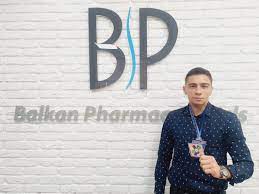Addiction can be an overwhelming and challenging obstacle in one’s life. It can lead to severe consequences, both physically and emotionally, and may make individuals feel trapped and hopeless. However, it is crucial to remember that addiction is not a life sentence, and with the right support and tools, it is possible to overcome this struggle and create a healthier and more productive future. In this article, Julian Mitton, MD, offers valuable insights and tips on how to navigate the journey of overcoming addiction and staying healthy and productive.
Understanding Your Addiction
The first step in overcoming addiction is to understand its nature. Addiction is a complex condition that compels individuals to use substances or engage in certain behaviors, despite the negative consequences. According to Julian Mitton, MD, addiction can be particularly challenging to overcome because it tricks the brain into believing that substance use or addictive behaviors can solve problems, when in reality, they only exacerbate them. Understanding the underlying mechanisms of addiction can help individuals develop a greater sense of self-awareness and recognize the need for change.
Managing Triggers
Identifying and managing triggers is an essential aspect of the recovery process. Triggers can be specific people, places, situations, or activities that may tempt or prompt addictive behavior. By becoming aware of these triggers, individuals can develop strategies to cope with them effectively. This may involve avoiding certain environments or individuals, seeking alternative activities, or developing healthy coping mechanisms to address cravings or emotional distress.
Building a Support System
Having a strong support system is crucial when overcoming addiction. Friends and family can offer invaluable support, understanding, and encouragement throughout the recovery journey. However, in some cases, it may be necessary to seek additional support from addiction and mental health professionals. Consulting with addiction specialists or therapists who have experience in treating substance abuse can provide individuals with tailored guidance and treatment plans to address their specific needs. Seeking recommendations from others who have successfully overcome addiction can be a helpful starting point in finding the right professionals.
Learning to Say No
Learning to say no is a vital skill for maintaining a healthy and productive life during addiction recovery. It can be challenging, as it may feel like disappointing others or falling short of expectations. However, setting boundaries and prioritizing self-care is essential for long-term success. Saying no to situations or activities that may jeopardize sobriety or trigger addictive behavior is an act of self-preservation and empowerment.
Utilizing Recovery Tools and Resources
Recovery from addiction is a multifaceted process that often requires professional help and various tools and resources. Group therapy provides a supportive environment where individuals can share their experiences, receive encouragement, and learn from others who are facing similar challenges. Individual counseling can provide a more personalized approach, allowing individuals to address underlying issues and develop coping strategies tailored to their specific needs.
In conclusion, overcoming addiction and leading a healthy and productive life requires self-awareness, support, and a commitment to change. Understanding the nature of addiction, managing triggers, building a strong support system, learning to say no when necessary, and utilizing recovery tools and resources are essential components of the recovery journey. It is important to remember that overcoming addiction is a process that takes time, effort, and patience. With the right support and tools in place, individuals can break free from the chains of addiction and create a brighter future for themselves Click here Julian Mitton, MD.
Julian Mitton, MD: The Addict’s Survival Guide – Overcoming Addiction and Staying Healthy and Productive

Categories:

